- AdventHealth

DAYTONA BEACH, Fla., June 11, 2018 An emergency medicine physician at AdventHealth Memorial Medical Center wants to remind adults how dangerous cars can become for children during the hot summer months in Florida.
To demonstrate how quickly vehicles can heat up and explain the onset of heat stroke symptoms in children, Dr. Steve Swearingen, emergency medicine physician at AdventHealth Memorial Medical Center, sat in a car with engine and AC turned off and the windows rolled up for 15 minutes on June 7.
The purpose of this short demonstration was to highlight how dangerous it can be to leave a child in a car.
Heatstroke is more common during these summer months: April through September, Swearingen said. When body temperature reaches 107 degrees, cells start to die, and organs begin to fail. Symptoms of heatstroke in adults and children who are trapped in a hot car include dry and flushed skin, fast heart rate, confusion, hallucinations, seizures or loss of consciousness. In extreme cases, death can occur.
Even with cloud coverage and a sprinkle of rain during the demonstration, it was 84 degrees outside and the parked cars temperature quickly climbed nearly 20 degrees to just over 102 degrees.
While in the car, Swearingen’s vital signs were monitored, including heart rate, blood pressure, respiration and oxygen saturation.
Upon entering the vehicle, his heart rate was 87 beats per minute (BPM), but 15 minutes later, it had risen to 105 BPM.
This is a drastic increase for someone who is sitting still. The average resting heart rate for an adult is between 50 and 100 BPM, Swearingen said. Thanks to the clouds; I honestly don’t think I would have made it the full 15 minutes if the sun had been out. During the dry run earlier this week, with the sun out, the car got to 116 degrees in just 10 minutes.
In the U.S., 21 states have laws with specific language addressing leaving a child unattended in a vehicle. Four states allow a period of time that a child may be left unattended before it becomes a crime. Under Florida law, a child can be left alone in a vehicle for 15 minutes or less, as long as the car's engine is turned off.
According to NoHeatStroke.org, there were 42 pediatric vehicular heatstroke deaths in the U.S. in 2017. This year, there have already been 12 deaths reported.
Children's thermoregulatory systems don't work as well as adults, so they can show signs of heat stroke or heat exhaustion 3 to 5 times faster, Swearingen said. The changes in my vital signs over the course of 10 minutes can happen to a child in just two minutes.
To help prevent accidents from occurring, Swearingen suggested a few tips to adults.
Maybe put your purse, your phone or your wallet in the backseat when you drive, Swearingen said. These are things you are more likely to remember to take out of the car with you and you can remember that your child is in the car.
About AdventHealth Memorial Medical Center
AdventHealth Memorial Medical Center is a member of Adventist Health System, a faith-based health care organization with 46 hospital campuses in nine states, serving more than 5 million patients annually. With a mission to extend the healing ministry of Christ, AdventHealth Memorial Medical Center includes the 327-bed facility in Daytona Beach, as well as AdventHealth Oceanside with 80 beds in Ormond Beach. AdventHealth Memorial Medical Center and AdventHealth Oceanside are two of the seven AdventHealths in Flagler, Lake and Volusia counties that composes the AdventHealth Central Florida Division - North Region. As the largest hospital system in the area, the AdventHealth Central Florida Division - North Region has 1,226 beds and more than 7,800 employees.
Recent News
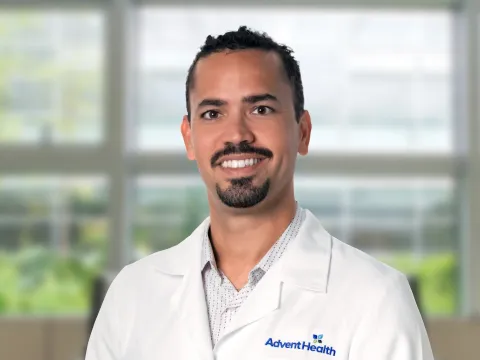
Albit Paoli, MD joins AdventHealth Medical Group Orthopedics & Sports Medicine
AdventHealth is pleased to announce that Albit Paoli, MD, has joined AdventHealth Medical Group Orthopedics & Sports Medicine at Calhoun and AdventHealth Medical Group Orthopedics & Sports Medicine at...

Dr. Phillips Center launches free Frontyard Holiday Festival supported by AdventHealth
The Dr. Phillips Center is launching its first-ever Frontyard Holiday Festival supported by AdventHealth.
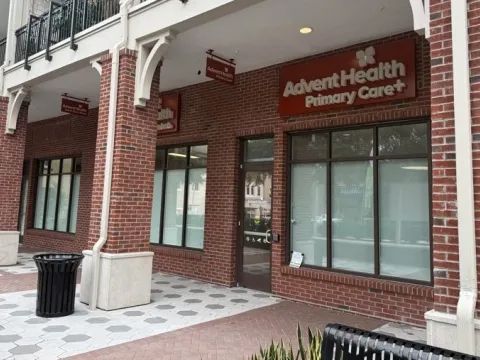
AdventHealth expands access to primary care in the heart of DeLand
AdventHealth has opened a new Primary Care+ location in the heart of downtown DeLand, giving residents a simple way to get everyday care close to where life happens. The primary care practice offers...
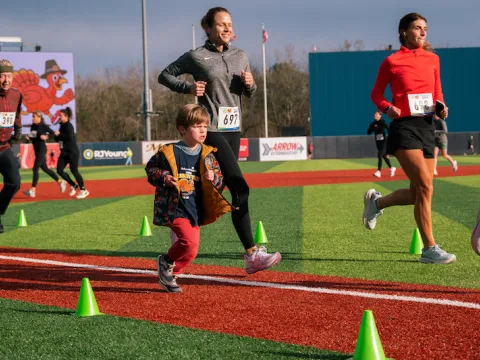
AdventHealth Rome Turkey Trot brings community together
Over 700 people gathered on Thanksgiving morning for the AdventHealth Rome Turkey Trot, raising $15,000 for Northwest Georgia Hunger Ministries.
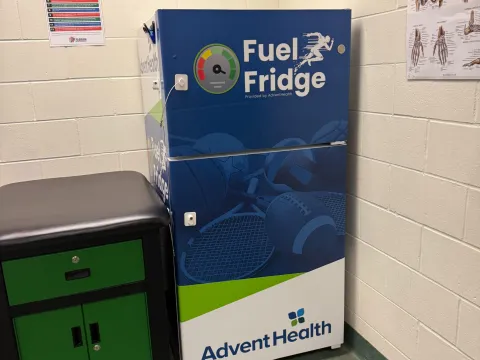
Fueling healthy futures for Flagler’s student athletes
Early practices, full class schedules, and evening games can push student athletes to their limits, and proper nutrition is essential to keeping them strong and focused. AdventHealth has introduced...
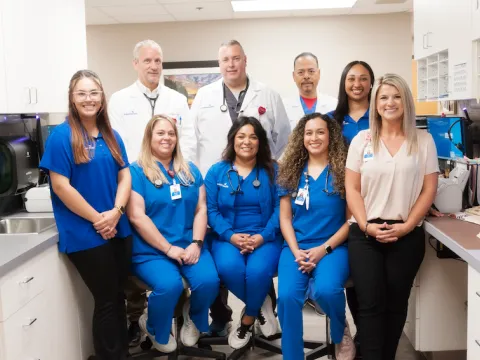
AHMG Cardiology at Dalton earns nuclear cardiology accreditation
AdventHealth Medical Group Cardiology at Dalton has earned a three-year accreditation in Nuclear Cardiology from the Intersocietal Accreditation Commission (IAC).
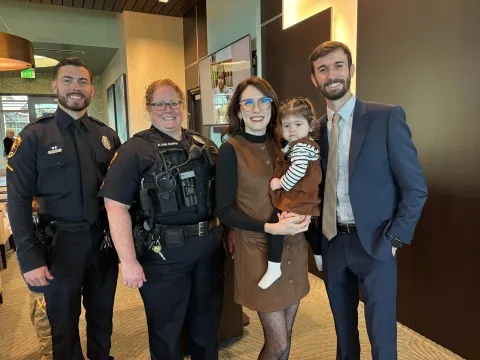
When seconds count: How a community of heroes saved one little girl
It was a day like any other — until the phone rang. For Ellison’s mom, that call froze time: “You need to get here right away.”

AdventHealth expands neurology services in West Volusia
Board-certified neurologist Dr. Zarmina Mufti has joined AdventHealth Medical Group and is now caring for patients at AdventHealth, expanding access to expert, whole-person neurological care for...

Central Florida organizations unite to ensure children and families facing food insecurity are fed over holiday break
AdventHealth, Orlando Magic, Florida Citrus Sports and Second Harvest Food Bank team up to support children across Orange, Osceola and Seminole counties.
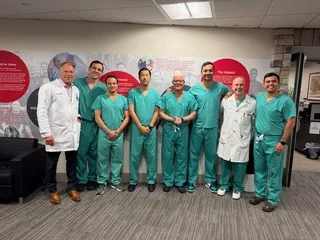
Pursuing excellence in knee surgery: Colorado Joint Replacement hosts Insall Traveling Fellowship
The international program that brings leading knee surgeons together to learn, collaborate and elevate the future of joint care.

An ocean between them, and a calling that reunited them
After seven years apart, sisters Maricar Olsen and Ermeliza Ortiz were reunited in a place they both now call home. Their journey from the Philippines to Central Florida is a story of faith, family...
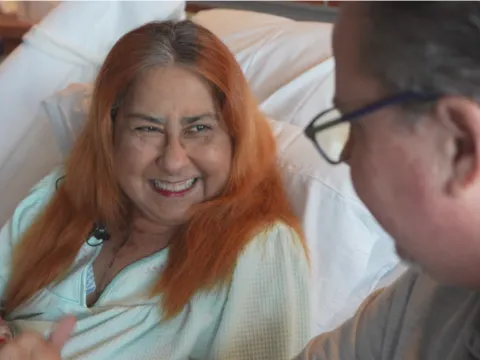
‘Definitely a miracle’: Puerto Rican woman receives rare heart-lung transplant in Florida
After only a month of waiting, Ivelese Nieves found herself among fewer than 70 patients nationwide each year who receive a rare, lifesaving operation.
